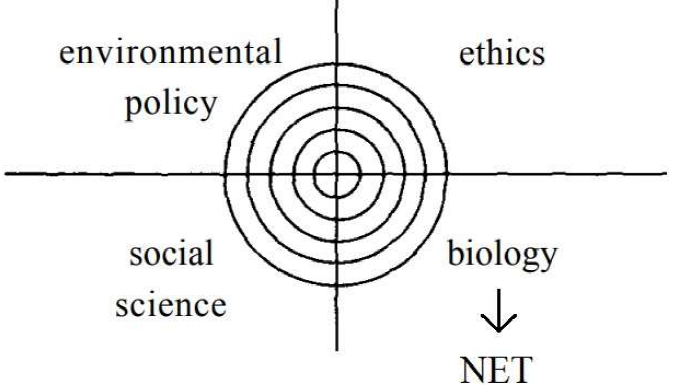
Asia Pacific Academy of Science Pte. Ltd. (APACSCI) specializes in international journal publishing. APACSCI adopts the open access publishing model and provides an important communication bridge for academic groups whose interest fields include engineering, technology, medicine, computer, mathematics, agriculture and forestry, and environment.

This study develops a synthetic sustainability indicator (SSI) to assess corporate sustainability performance using data from Spanish IBEX 35 companies. Utilizing sparse principal components analysis (sPCA), the study condenses 65 Environmental, Social, and Governance (ESG) variables into a single indicator, addressing the lack of standardization in CSR evaluations and enabling comparisons across companies and sectors. The results show that environmental practices are the most significant factor (37.30%), followed by labor practices (19.23%) and corporate governance (18.52%). The study’s key contribution lies in offering a quantifiable, transparent method for evaluating corporate sustainability. The SSI provides valuable insights for investors and analysts, promoting data-driven decision-making and encouraging corporate improvements in sustainability performance.
Environmental culture in university students refers to the set of knowledge, values and behaviors that they acquire and practice with the protection of the environment within their academic space, supported by environmental educational policies. We proposed to understand the existence of an inadequate environmental culture in university students. The objective of this study was to analyze university educational policies and environmental culture in Peruvian students, comparing the results according to sociodemographic variables. A total of 2448 intentionally chosen university students participated, a non-experimental cross-sectional design was used, a quantitative approach of comparative descriptive level was used. In addition, in the data analysis, the descriptive results are presented in a table of frequencies and percentages, while the inferential analyses are presented in statistics. A medium level of environmental culture was found at 57.3% with a tendency to be low at 37.3% in university students. In addition, the comparison of sociodemographic variables indicates that there are statistically significant differences (p < 0.05), therefore, the students from public universities, the area of social sciences and the last years of study present higher scores than the other comparison groups. In conclusion, environmental educational policies have not been adequate and applied by universities to generate an adequate environmental culture in university students within the academic field.
Domestic and foreign countries have different views on soft law governance. In China, the understanding of “soft law” stays at a static level, which is considered to be a social norm in a pluralistic sense. Foreign countries understand “soft law” from a dynamic perspective, that is, they mainly tend to take it as a means of governance and a mechanism to solve disputes and contradictions. Combining the above two viewpoints, soft law governance can be understood as a governance concept or governance model, and it takes the needs of the governance object as the starting point. Moreover, it advocates bottom-up governance. This governance method reflects the value connotation of people-oriented, democratic, autonomous and inclusive, and actively practices “multi-subject participation”. It can be seen that, rather than hard law, soft law is more suitable for the liquidity, development and change characteristics of enterprise data, especially in the context of environmental-related data, and is conducive to condensing the governance force of multiple subjects including the government. The effectiveness of enterprise data compliance governance is of great significance in the field of environmental protection. With the help of ecological environment data such as carbon emission data, environmental detection data and pollution control data, the efficiency and benefit of ecological environment governance can be improved, and the efficiency of ecological governance can be driven by data. But compared with the United States, the European Union and Singapore, the effect of enterprise data compliance soft law governance is not significant. Through literature research and comparative analysis, the factors affecting the effectiveness of Chinese soft law in enterprise data compliance governance are analyzed, and the solutions can be found from the comparative analysis.
The research underscores the pivotal role of corporate governance in analyzing corporate legal responsibility within the context of corporate governance and environmental sustainability. The increasing societal awareness about climate change and social equity has compelled companies to scrutinize their operations’ environmental and social impacts. These corporate legal responsibilities encompass adherence to environmental regulations, human rights, and labor practices. The research methodology is a comprehensive literature study, aligning with the research context. The findings underscore that compliance with legal responsibilities forms the bedrock of sustainable business practices. The analysis culminates in the assertion that robust corporate governance plays a pivotal role in guiding companies to not only meet existing environmental and social regulations but also integrate sustainability considerations into their corporate culture. The potential consequences of non-compliance are severe, including reputational damage, legal penalties, and environmental and social harm. This triumph is evident in the enhanced transparency, accountability, and environmental and social performance.
Climate change poses an existential threat, disproportionately impacting marginalized communities. This article explores integrating environmental justice principles into Hong Kong legal education to empower future lawyers in combating the climate crisis. It highlights the importance of interdisciplinary approaches, experiential learning opportunities, and policy advocacy training. Case studies illustrate successful legal interventions and grassroots support strategies. The article emphasizes the evolution of professional ethics, balancing client interests with societal responsibilities. It proposes curriculum designs that incorporate real-world case studies, clinical experiences, and skill development in areas like legal drafting and climate litigation. By equipping Hong Kong law students with environmental justice perspectives, legal education can cultivate a generation of climate-conscious lawyers, driving transformative change towards a more equitable and sustainable future.
This study investigates the mechanisms through which green transformational leadership (GTL) and green authentic leadership (GAL) influence employees’ green behavior for sustainable development (EGB). Drawing from social cognitive and goal-setting theories, we examined the mediating role of environmental consciousness (EC) and the moderating role of goal clarity (GC) using survey data collected from 532 employees across diverse organizational contexts in China. Partial least squares structural equation modeling (PLS-SEM) via SmartPLS was employed to analyze the data. Results indicate that GTL and GAL positively impact EC and EGB directly. EC significantly mediates the relationship between both leadership styles and EGB, highlighting its critical psychological function in translating leadership practices into concrete environmental actions. Additionally, GC significantly strengthens the positive relationship between EC and EGB, demonstrating the importance of clearly articulated sustainability objectives in fostering sustainable workplace behaviors. These findings provide essential theoretical insights and practical implications for enhancing sustainability performance through targeted leadership practices, environmental awareness initiatives, and effective sustainability goal-setting strategies.

University of Lapland, Finland

Yaroslav Mudryi National Law University, Ukraine
-
-
-
EBSCO
-
HEINONLINE
-
Crossref
-
Publons
-
ROAD
-
WorldCat
-
J-Gate
-
Scilit
-
EuroPub
-
SSRN
-
Index of Copernicus
-
CiteFactor
-
Dimensions
-
DRJI
-
Zenodo
-
TrendMD
-
OpenAIRE
-
-


 Open Access
Open Access